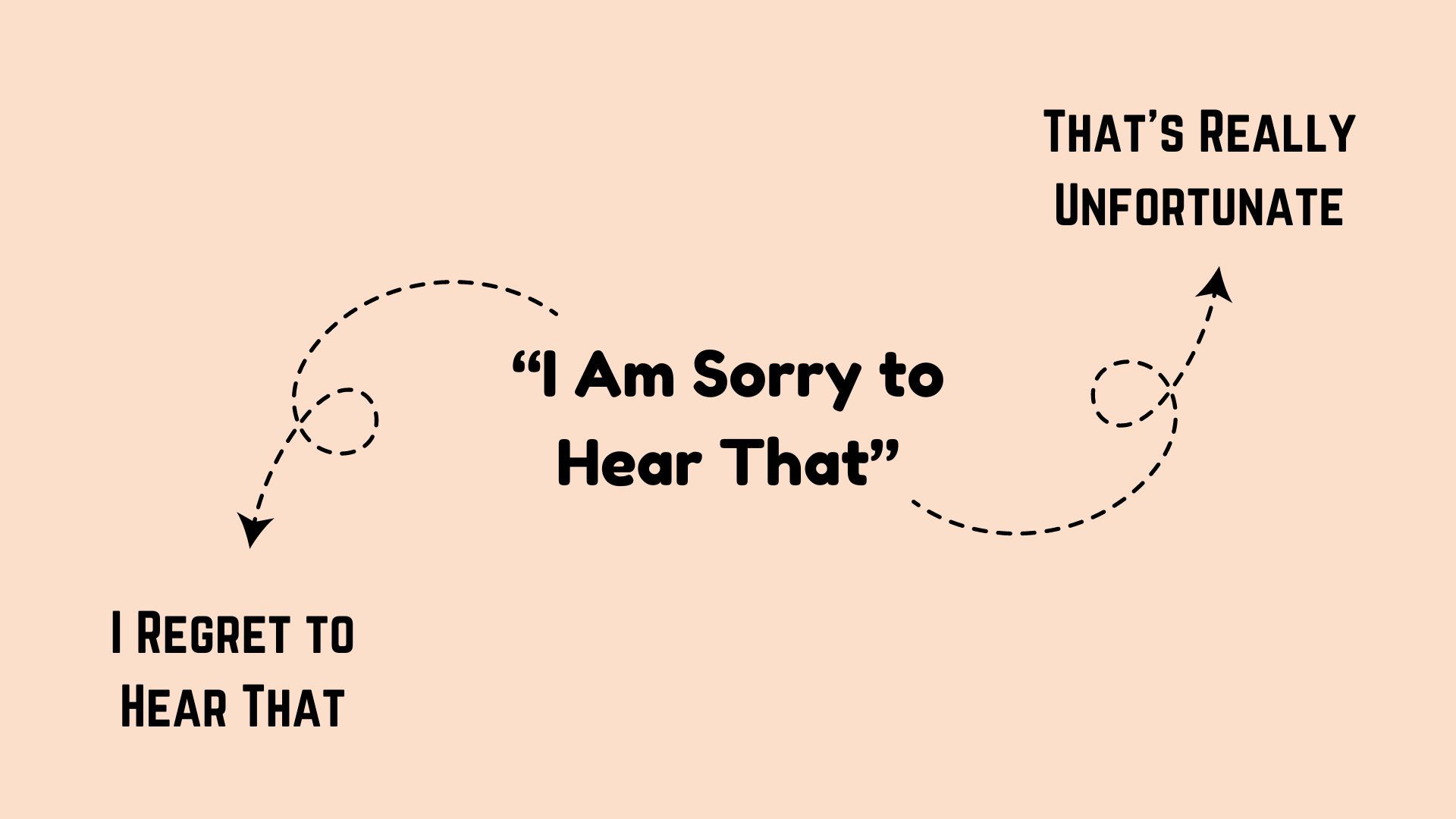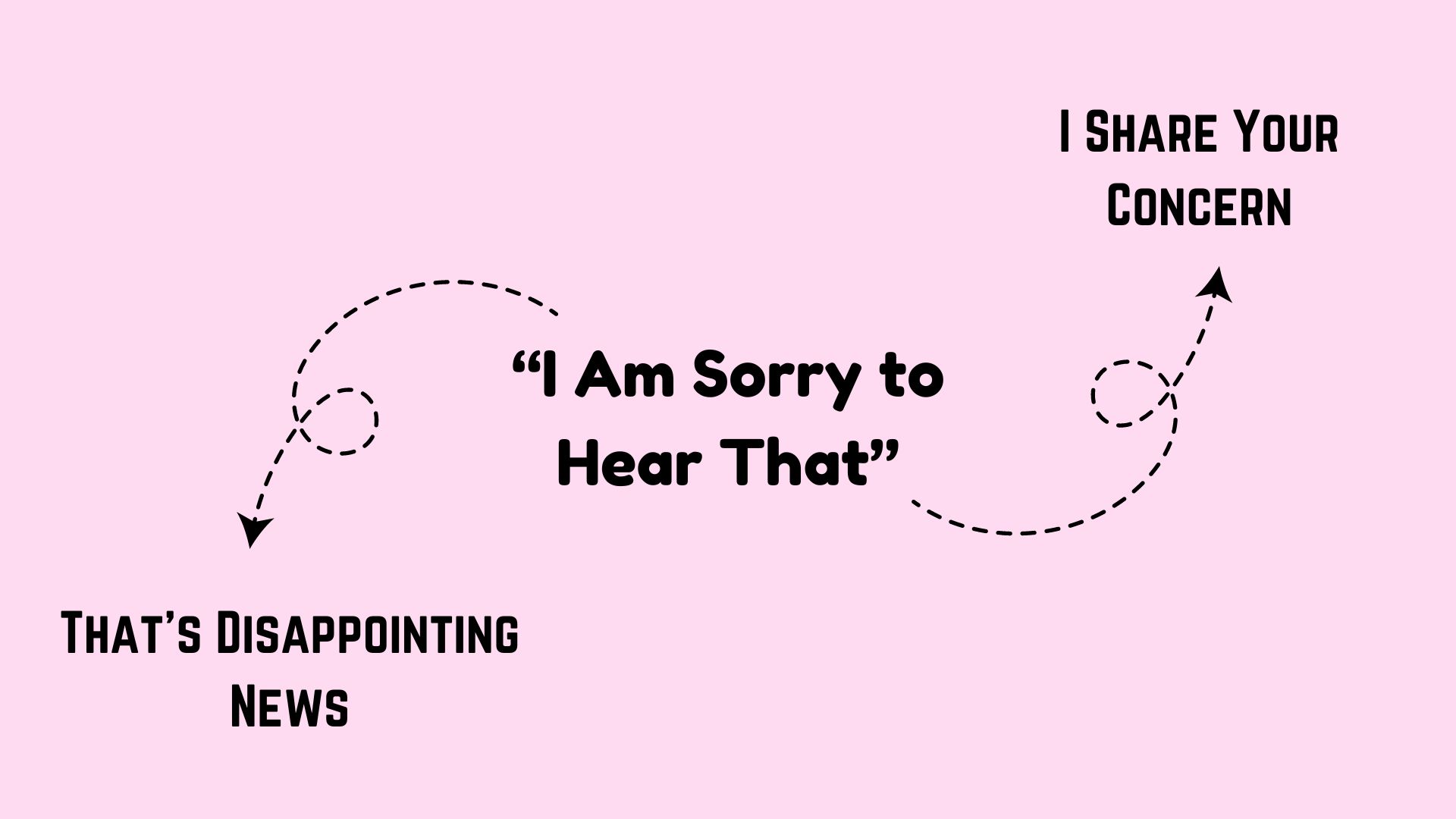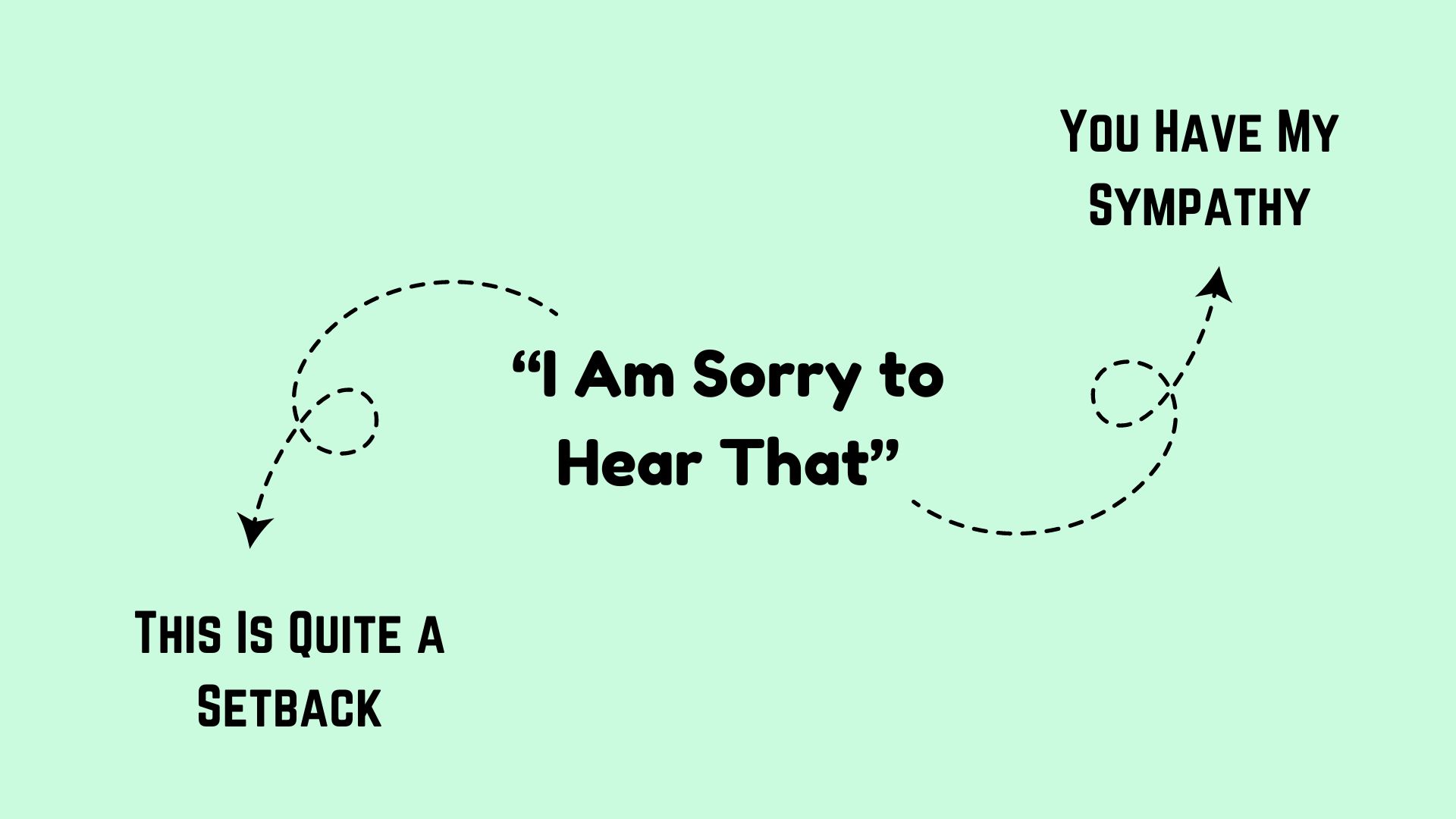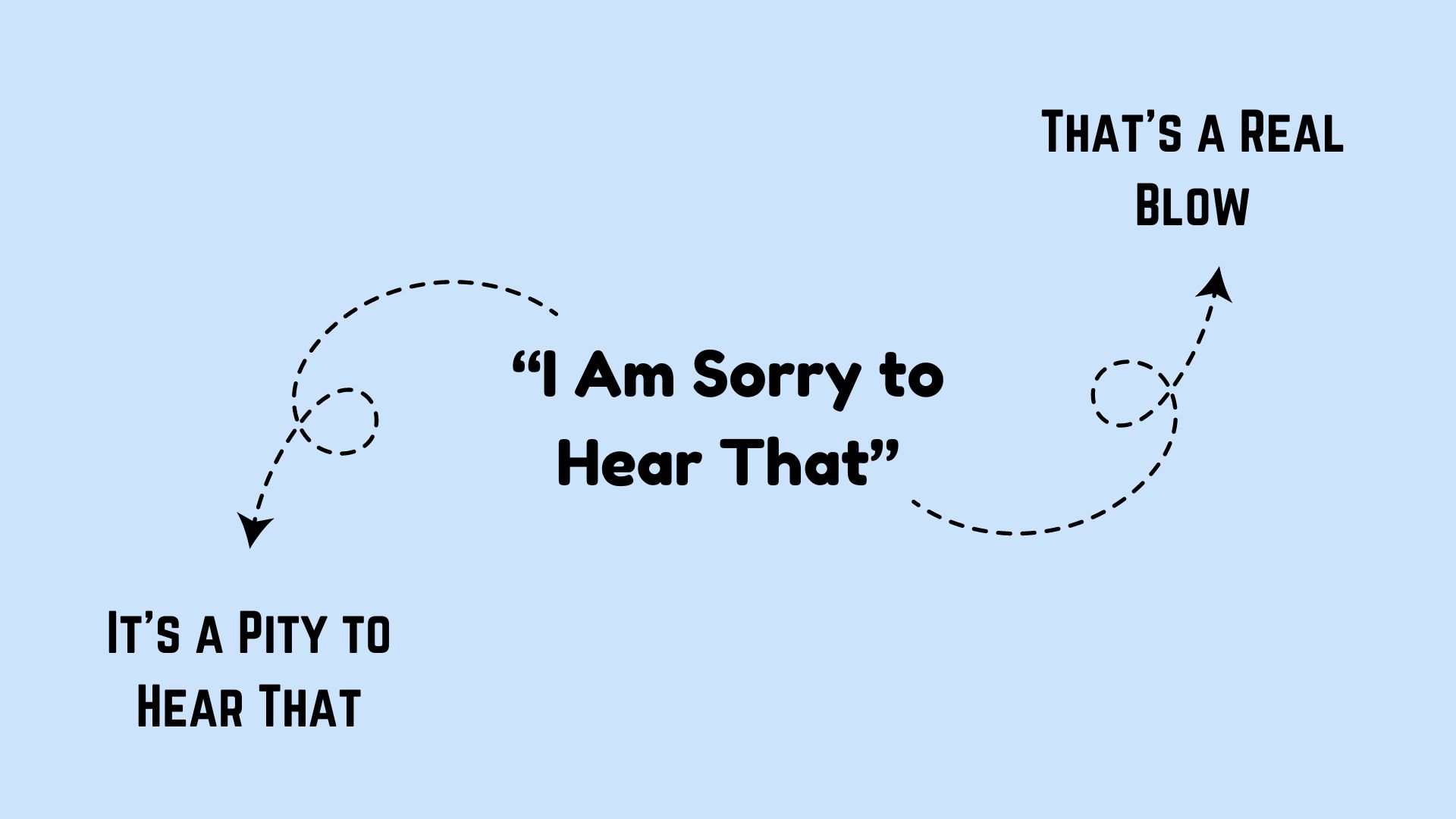Expressing sympathy and understanding in a professional environment is key to maintaining a supportive atmosphere. Here are 27 ways to say “I am sorry to hear that” in a professional context, each with an example sentence and a specific use case to help you communicate empathy effectively.
1. I’m Sorry to Hear This News
Example: “I’m sorry to hear this news about the project delays.”
Use Case: Ideal for acknowledging setbacks in business projects or plans.
2. That’s Really Unfortunate
Example: “That’s really unfortunate about the funding issue.”
Use Case: When responding to financial or resource-related setbacks.
3. My Condolences
Example: “My condolences on your recent loss.”
Use Case: Appropriate for expressing sympathy regarding a personal loss within a professional setting.
4. I Regret to Hear That
Example: “I regret to hear that the deal fell through.”
Use Case: Used when a business deal or agreement fails to materialize.
5. That Must Be Tough on You
Example: “That must be tough on you, having to redo the entire report.”
Use Case: When someone is facing a challenging workload or redoing tasks.

6. I’m Saddened by This News
Example: “I’m saddened by this news of the branch closing.”
Use Case: Expressing sympathy regarding decisions that lead to significant changes or closures.
7. This Is Disheartening to Hear
Example: “This is disheartening to hear, especially given your hard work.”
Use Case: Acknowledging someone’s effort that didn’t lead to the desired outcome.
8. I Share Your Concern
Example: “I share your concern about the new regulations impacting us.”
Use Case: When new challenges arise that affect the team or company.
9. I Can Only Imagine What You’re Going Through
Example: “I can only imagine what you’re going through with these changes.”
Use Case: Showing empathy towards someone dealing with difficult adjustments.
10. That’s Disappointing News
Example: “That’s disappointing news about the client’s decision.”
Use Case: Reacting to a client’s negative decision that impacts the company.

11. I Wish I Had Better News
Example: “I wish I had better news regarding the budget cuts.”
Use Case: When you are the bearer of bad news and want to show empathy.
12. I Understand This Is a Difficult Time
Example: “I understand this is a difficult time for the team.”
Use Case: Acknowledging group struggles, such as during layoffs or restructuring.
13. That’s Tough to Hear
Example: “That’s tough to hear, knowing how much effort you’ve put in.”
Use Case: When an individual’s efforts don’t yield expected results.
14. You Have My Sympathy
Example: “You have my sympathy during this challenging transition.”
Use Case: Expressing personal sympathy in response to professional or personal challenges faced by a colleague.
15. This Is Quite a Setback
Example: “This is quite a setback for our project timeline.”
Use Case: When delays or problems set back project timelines significantly.

16. I’m Here If You Need Support
Example: “I’m here if you need support with these new responsibilities.”
Use Case: Offering help to a colleague who is taking on more responsibilities after an unexpected change.
17. Let’s Work Through This Together
Example: “Let’s work through this together and find a solution.”
Use Case: Encouraging a collaborative approach to overcoming difficulties.
18. I’m Touched by Your Situation
Example: “I’m touched by your situation and am here to help as best I can.”
Use Case: When you want to offer help and show deep personal concern.
19. It’s a Pity to Hear That
Example: “It’s a pity to hear that the conference was canceled.”
Use Case: Responding to the cancellation of events or opportunities.
20. That’s a Real Blow
Example: “That’s a real blow to our team’s morale.”
Use Case: When a situation negatively affects team spirit or dynamics.

21. I Acknowledge How Hard This Must Be
Example: “I acknowledge how hard this must be for you.”
Use Case: Validating someone’s feelings during tough times.
22. This Must Be Disappointing for You
Example: “This must be disappointing for you, after all the preparation you’ve done.”
Use Case: Acknowledging someone’s disappointment after extensive effort.
23. It Saddens Me to Hear This
Example: “It saddens me to hear that your proposal wasn’t accepted.”
Use Case: Showing personal regret over someone else’s professional setback.
24. I Hope This Doesn’t Discourage You
Example: “I hope this doesn’t discourage you; your ideas are valuable.”
Use Case: Encouraging a colleague not to lose heart after a setback.
25. It’s Hard to Accept, Isn’t It?
Example: “It’s hard to accept, isn’t it? Let’s see how we can adjust.”
Use Case: Empathizing with someone’s difficulty in accepting changes and suggesting collaboration to find solutions.
26. I Feel for You
Example: “I feel for you, having to deal with this issue repeatedly.”
Use Case: Expressing sympathy for ongoing problems that a colleague is dealing with.
27. Let’s Navigate This Challenge Together
Example: “Let’s navigate this challenge together; your input is crucial.”
Use Case: Reinforcing teamwork in facing challenges and valuing a colleague’s contribution.
Each of these phrases helps to convey sympathy and professionalism, ensuring that you express your feelings appropriately in various professional contexts.

